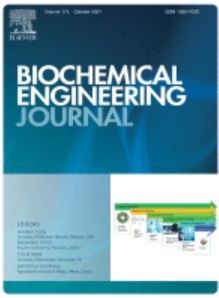A highly selective, sensitive, and long-term stable glucose biosensor was developed, based on β-cyclodextrins (β-CDs) grafted onto magnetite/polydopamine (Fe
3O
4/PDA) with adsorbed glucose oxidase (GOx) from
Aspergillus niger. The properties of the nanoplatform were determined by
transmission electron microscopy (TEM), atomic force microscopy (AFM),
Fourier transform infrared spectroscopy (FT-IR), Bradford assay, electrokinetic analysis (zeta potential), non-invasive light scattering (NIBS) and measurement of the
polydispersity index (PdI). The biosensor’s operating conditions were optimized, and the optimal conditions were used in tests on model and real glucose solution. Results for the biosensor showed a broad linear range (1–26 mM glucose), with sensitivity as high as 115.74 μA mM
−1 cm
−2 and a limit of detection (LOD) of 1.55 μM. The results show the biosensor to be an interesting potential tool for use in many areas where glucose measurement is essential. Moreover, the proposed system demonstrated long-term stability, up to 9 months. Furthermore, excellent selectivity against
ascorbic acid, uric acid, L-cysteine and sugars such as saccharose,
maltose and fructose was confirmed.

